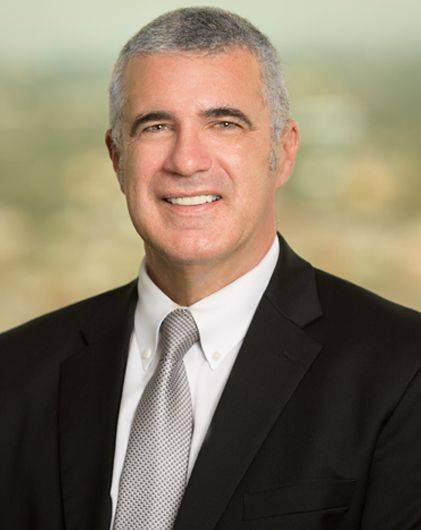Fifth Circuit Upholds Religious Exemption to LGBTQ Rights
In a case of first impression, the U.S. Court of Appeals for the Fifth Circuit has ruled that religious for-profit employers are exempt from the anti-discrimination protections provided to homosexual and transgender employees under Title VII of the Civil Rights Act and the Supreme Court’s landmark 2020 ruling in Bostock v. Clayton County.
Bostock established that discrimination on the basis of sexual orientation or transgender status is discrimination “because of sex” and falls within the ambit of Title VII. The three-judge panel held that under the federal Religious Freedom Restoration Act (RFRA), requiring such employers to comply with Title VII, as modified by Bostock, “would substantially burden its ability to operate per its religious beliefs about homosexual and transgender conduct.”
The lawsuit at the center of the ruling involved two Texas-based employers, Braidwood Management Inc. (Braidwood) and Bear Creek Bible Church (Bear Creek).
Braidwood operated several health-related businesses its owner operated as “Christian businesses” which will not employ individuals who engage in behavior the owner considers sexually immoral or gender non-conforming, nor does the owner allow Braidwood to recognize homosexual marriage, which the owner stated would “lend approval to homosexual behavior and make him complicit in sin.”
Braidwood also enforces a sex-specific dress code that disallows gender non-conforming behavior. Bear Creek is a nondenominational church whose bylaws do not recognize same-sex marriage and will not hire “practicing homosexuals, bisexuals, crossdressers, or transgender or gender non-conforming individuals.”
Braidwood and Bear Creek sued the Equal Employment Opportunity Commission (EEOC) in 2018, seeking declaratory judgments that Title VII and EEOC guidelines violated their religious freedom by preventing them from operating their businesses in accordance with what they believe the Bible instructs regarding homosexuality.
Even prior to the Bostock ruling, the EEOC had interpreted statutory prohibitions on sex discrimination to include sexual orientation and gender identity, requiring employers to treat homosexual marriage as the same as heterosexual marriage, and that workplace bathroom policy should be dictated by an employee’s asserted gender identity as distinguished from his or her biological sex.
The EEOC filed summary judgment seeking to dismiss based on standing and other procedural arguments. The U.S. District Court for the Northern District of Texas granted summary judgment on the merits in favor of Braidwood and Bear Creek, finding that their employment practices were protected by the RFRA and the First Amendment and ruling against the EEOC and ruled against the EEOC.
On appeal, the Fifth Circuit noted that in Bostock, the Supreme Court “punted” and left unanswered how religious liberties would be affected by the ruling and on the practical scope of the Title VII protections afforded by Bostock. As an initial point, the Fifth Circuit discounted the EEOC’s argument that the businesses lacked standing to bring their action because the EEOC had not yet taken any action against them, holding “the issues presented by this case require attention and have a chilling effect on employers whose religious exercises, until resolved, conflict with Title VII. Without resolution, potential penalties hang over plaintiffs’ heads like Damocles’ sword.”
The Fifth Circuit noted that in Bostock, the Supreme Court recognized that “[b]ecause RFRA operates as a kind of super statute, displacing the normal operation of other federal laws, it might supersede Title VII’s commands in appropriate cases” where the federal government substantially burdened a person’s exercise of religion without a compelling government interest. In ruling for Braidwood and Bear Creek, the Fifth Circuit held they met their burden under RFRA and the EEOC failed to show a compelling government interest:
To that end, the EEOC guidance almost assuredly burdens the exercise of Braidwood’s religious practice. For example, “a law that operates so as to make the practice of . . . religious beliefs more expensive in the context of business activities imposes a burden on the exercise of religion.” As the district court succinctly put it, “[E]mployers are required to choose between two untenable alternatives: either (1) violate Title VII and obey their convictions or (2) obey Title VII and violate their convictions.” We see no reason why that formulation is incorrect. Being forced to employ someone to represent the company who behaves in a manner directly violative of the company’s convictions is a substantial burden and inhibits the practice of Braidwood’s beliefs.
***
The EEOC’s euphemistic phrasing that “the only action that Braidwood is required to take under Title VII is to refrain from taking adverse employment actions” is tantamount to saying the only action Braidwood needs to take is to comply wholeheartedly with the guidance it sees as sinful. That is precisely what RFRA is designed to prevent.
The Fifth Circuit did reverse the lower court’s decision to certify classes in the case, limiting its decision to the individual claims brought by Braidwood and Bear Creek, and remanded the case back to the District Court.
Employers are advised that the holding in this case is limited to religious employers and discrimination on the basis of sexual orientation or transgender status is unlawful under Title VII, EEOC guidelines and the Supreme Court ruling in Bostock. Please contact Mark Fijman or any member of the Labor and Employment team if you have questions on this or need advice or guidance.


